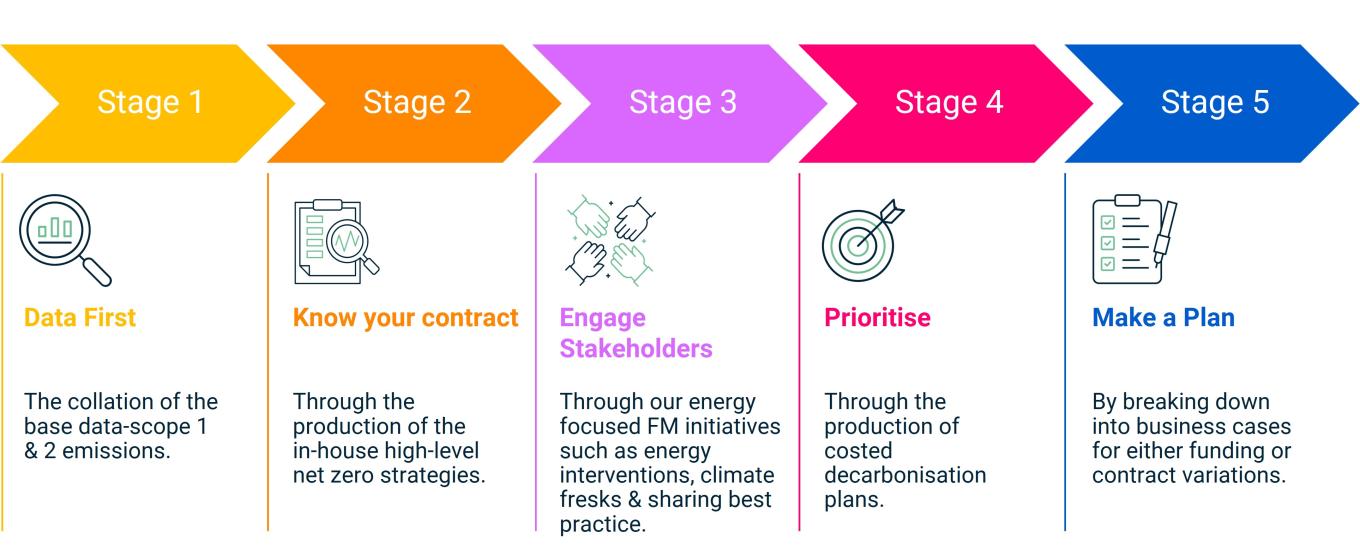Reimagining PFIs: How strategic partnerships and innovation are accelerating NHS net zero goals
As the NHS pushes forward with its commitment to deliver a net zero health service, the pressure to decarbonise estates is intensifying. Yet for many, the challenge can seem insurmountable. Legacy infrastructure, rigid contracts and siloed responsibilities have long been seen as barriers to progress.
But that narrative is changing. At Equans, we’re working across the healthcare sector to unlock the untapped potential of Private Finance Initiative (PFI) contracts - demonstrating that with the right data, digital tools, and partnerships, even the most complex environments can play a central role in delivering on net zero.
A shift in mindset: from constraint to catalyst
PFI contracts are often wrongly dismissed as unchangeable. In reality, they offer a wealth of opportunity if approached creatively and collaboratively. We’re helping our NHS clients and partners challenge outdated assumptions and reimagine the art of the possible, from introducing circular principles in FM to designing retrofit-friendly energy strategies.
Our 5-Stage FM & decarbonisation strategy
At the heart of this transformation is a structured approach that integrates facilities management with sustainability ambition. Our IPA (now NISTA) inspired five-stage strategy enables us to build bespoke, fundable decarbonisation roadmaps for complex estates:
- Data first - establish a robust emissions baseline (scope 1 & 2).
- Know your contract - develop in-house net zero strategies aligned with contractual realities.
- Engage stakeholders - drive action through FM-led initiatives like energy interventions and climate awareness sessions.
- Prioritise - create costed, impact-led decarbonisation plans.
- Make a plan - develop business cases for funding or contract variations.
This model not only drives sustainability, but improves efficiency and enhances resilience across operations.
Digital hospitals, smarter outcomes
Digital innovation is accelerating change and driving enhanced productivity across NHS estates. From automating routine FM processes to deploying asset tracking and virtual sub-metering, we’re helping healthcare clients modernise without disrupting service. These tools are already improving patient flow, room utilisation and operational productivity, while unlocking energy savings that directly support decarbonisation targets.
As NHS facilities become increasingly connected, cyber security must also evolve. With ever increasing cyber incidents reported across healthcare in 2024, we’re proud to support the implementation of the NHS Cyber Security Charter for suppliers, ensuring that innovation is matched by integrity.
Partnership in action: a blueprint for system-level collaboration
Delivering net zero in healthcare estates demands more than isolated interventions - it requires bold, cross-sector partnerships that align commercial innovation with public service outcomes.
One emerging model is the creation of multi-stakeholder energy partnerships, where local authorities, NHS trusts, and specialist providers work together to design and deliver sustainable infrastructure. For example, at Cambridge University Hospital, a solar carport microgrid connected via private wire enables a bi-directional power purchase agreement between the Trust and Cambridgeshire County Council - lowering costs, reducing emissions, and enabling EV infrastructure growth. This model demonstrates how energy generation and NHS resilience can be co-designed for mutual value.
Another promising approach lies in rethinking the PFI ecosystem itself. A recent three-way collaboration involving a funder and healthcare client, enabled us to unlock a previously ‘fixed’ contract and deliver sustainability-focused retrofit solutions - such as introducing a new energy infrastructure within the estate boundary and in the future having the ability to recover waste heat from nearby assets like data centres.
These examples point to a powerful shift: from transactional relationships to shared strategic intent. The future of NHS decarbonisation will be shaped not only by technology or funding but by our ability to build trust, align incentives, and deliver long-term impact through integrated partnerships.


